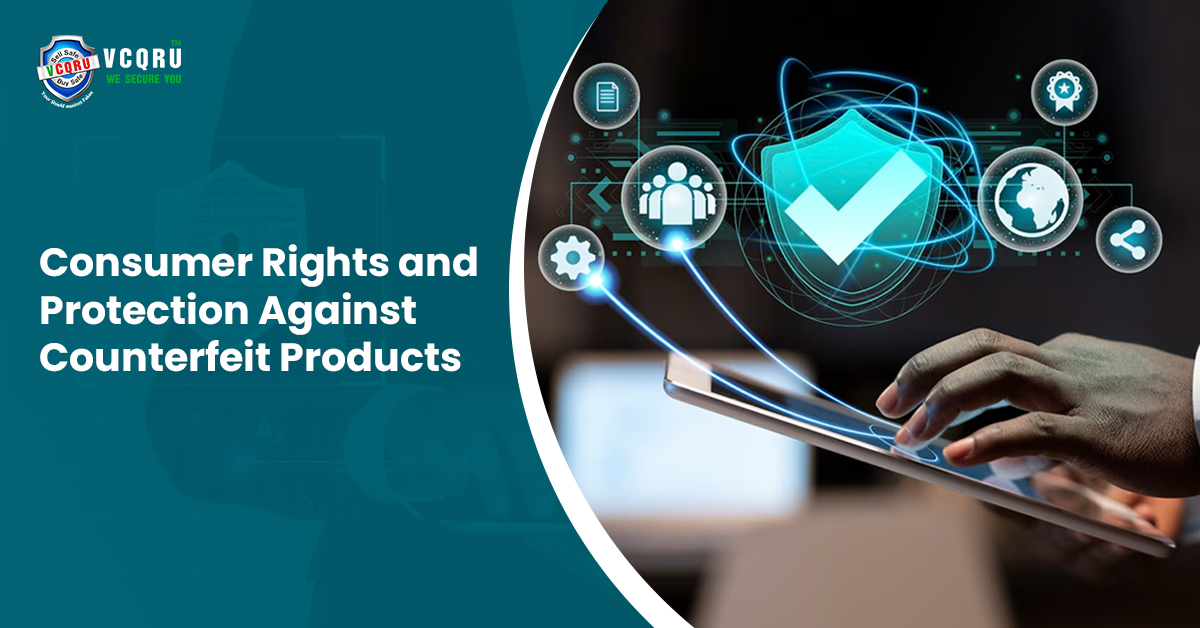

In today's global marketplace, consumers face a multitude of choices when it comes to purchasing goods. While variety can be advantageous, it also brings about challenges, particularly in the form of counterfeit products. Consumer rights are fundamental in ensuring fair and safe transactions between businesses and consumers. However, the rise of counterfeit products poses significant risks to consumers, ranging from health hazards to financial losses. Understanding consumer rights and ensuring protection against counterfeit products is paramount in safeguarding both consumers and legitimate businesses. In this comprehensive guide, we'll explore the importance of consumer rights and effective measures to protect consumers against counterfeit products.
Counterfeit products are unauthorized replicas of branded goods, often produced with the intention of deceiving consumers into believing they are purchasing genuine items. These counterfeit goods can encompass a wide range of products, including apparel, electronics, pharmaceuticals, and luxury items. Counterfeiters capitalize on the popularity of well-known brands, mimicking their logos, packaging, and product designs to deceive unsuspecting consumers. These products pose multifaceted challenges to consumers, businesses, and regulatory authorities:
Counterfeit products, especially in sectors like pharmaceuticals, cosmetics, and electronics, can pose serious health and safety risks to consumers. Substandard ingredients, improper manufacturing processes, and lack of quality control measures make these products potentially hazardous.
Counterfeiting undermines the economy by depriving legitimate businesses of revenue, reducing tax revenues, and stifling innovation. Moreover, consumers who unwittingly purchase counterfeit goods may incur financial losses due to inferior product quality or lack of recourse.
The proliferation of counterfeit products erodes consumer trust in brands and the marketplace as a whole. When consumers cannot distinguish between genuine and fake products, brand reputation suffers, leading to diminished consumer confidence and loyalty.
Consumer rights refer to the set of entitlements that consumers have when they engage in commercial transactions. These rights are designed to safeguard consumers from unfair practices, ensure product quality and safety, and provide avenues for recourse in case of disputes. Some fundamental consumer rights include the right to safety, the right to be informed, the right to choose, and the right to redress. Consumers have fundamental rights that protect them from the dangers and pitfalls associated with counterfeit products. These rights include:
Consumers have the right to expect that the products they purchase are safe for use and free from potential harm. Counterfeit products often fail to meet safety standards and may pose risks such as toxic ingredients, faulty components, or inadequate quality control.
Consumers have the right to accurate and transparent information about the products they purchase. Counterfeit products are often sold with misleading or false information regarding their origin, ingredients, and manufacturing processes, etc. Counterfeit products mislead consumers with false claims and labeling, depriving them of the ability to make informed choices.
In the event that consumers suffer harm or financial loss due to counterfeit products, they have the right to seek redress and compensation for damages. However, the complex nature of counterfeit trade makes it challenging for consumers to hold counterfeiters accountable and seek restitution for any harm suffered. This may involve seeking refunds, product replacements, or legal recourse against the parties responsible for manufacturing or distributing the counterfeit goods.
Consumers have the right to choose from a variety of genuine products without the interference of counterfeit alternatives. Counterfeit goods distort market competition and limit consumer choices.
Consumers have the right to access educational resources and awareness campaigns aimed at empowering them to identify and avoid counterfeit products. By empowering consumers with knowledge, they can make informed decisions and protect themselves from falling victim to counterfeit scams.
To safeguard consumer rights and mitigate the risks associated with counterfeit products, stakeholders at various levels must collaborate to implement robust protective measures:
Governments play a crucial role in enacting and enforcing laws and regulations to combat counterfeiting. Law enforcement agencies play a vital role in enforcing these laws and prosecuting counterfeiters. These frameworks should include stringent penalties for counterfeiters, robust inspection mechanisms, and initiatives to raise consumer awareness.
Advancements in technology have enabled the development of various anti-counterfeiting technologies to authenticate products and prevent counterfeiting. These technologies include security features like holograms, RFID tags, tamper-evident seals, and QR codes, which help verify the authenticity of products and protect consumers from purchasing counterfeit goods.
Collaboration between government agencies, law enforcement, industry stakeholders, and consumer advocacy groups is essential in the fight against counterfeit products. By working together, these entities can share resources, intelligence, and best practices to disrupt counterfeit operations and protect consumers.
Ensuring transparency and traceability throughout the supply chain including manufacturers, distributors, retailers, and law enforcement agencies, is essential for effectively combating counterfeiting. From raw material sourcing to distribution, clear documentation and monitoring can deter counterfeiters and uphold consumer rights.
Raising awareness among consumers about the risks of counterfeit products and how to identify them is key to combating counterfeit trade. Awareness campaigns can help consumers recognize the signs of counterfeit goods and understand the risks associated with purchasing them.
Establishing channels for consumers to report suspected counterfeit products can facilitate swift action against counterfeiters. Consumers should exercise caution when purchasing goods, scrutinize product packaging and labeling for signs of authenticity, and report suspected counterfeit activity to relevant authorities. Reporting mechanisms empower consumers to play an active role in protecting themselves and others from counterfeit goods.
Emerging technologies such as blockchain, artificial intelligence, and big data analytics hold promise in the fight against counterfeiting. Blockchain, for instance, enables secure and transparent product traceability, while AI-powered algorithms can analyze vast amounts of data to identify patterns indicative of counterfeit activity.
Intellectual property rights, including trademarks, patents, and copyrights, serve as legal mechanisms to protect brands and their products from counterfeiters. Companies can take legal action against counterfeiters who infringe upon their intellectual property rights.
Consumer rights and protection against counterfeit products are critical components. By upholding consumer rights and implementing robust measures to combat counterfeit trade, we can safeguard consumer safety, promote fair competition, and preserve trust and integrity.
Remember, as consumers, we hold the power to make informed choices and demand accountability from businesses and authorities. Together, let's advocate for stronger consumer rights and a counterfeit-free future.
For any queries feel free to contact us and our expert support team will get back to you as soon as possible!

A unique online presence is a key factor for magnified business growth. In today’s era where 85% of the population uses social media, your brand, and your business must be able to connect with your target audience in no time. Online marketing strategy is referred to advertising delivered through digital channels to promote brands and connect potential customers using the internet and other forms of digital communication.
April 10, 2023You may need to provide clients a cause to keep buying from you on occasion, stirring your pot of profits. Businesses provide special discounts to clients who make frequent purchases in order to promote customer loyalty. This well-executed art is known as a loyalty programme.
Mar 15, 2023Pipeline Construction is a dynamic industry that continues to grow and
SEPTEMBER 26, 2019